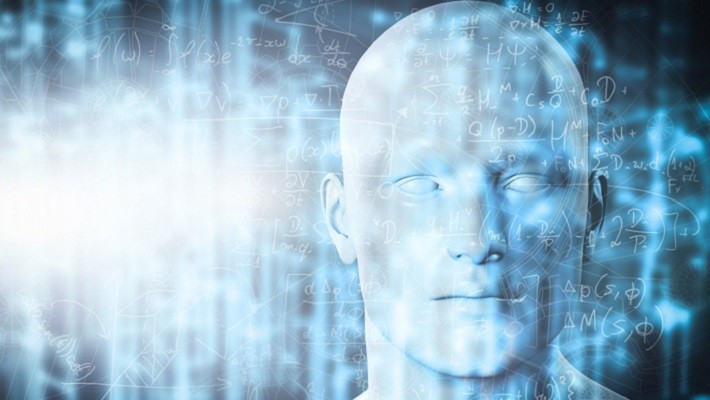Should we fear AI in marketing?
It’s rare to attend a marketing conference these days that doesn’t include some sweeping predictions about the implications of Artificial Intelligence for our industry. If you’re anything like me, this stirs mixed feelings. As a B2B marketer I can’t deny the immense value of being able to learn from data – and integrate it into the creative process. At LinkedIn Marketing Solutions, we test and optimise like crazy – and it works. On the other hand, every time I hear another presentation about how AI will anticipate every audience interest and need – and lay out a seamless life experience for people that they no longer need to think about – I shed a little tear inside.
There’s a lot of peer pressure to feel positive about AI in marketing – or risk painting yourself as a luddite that just doesn’t get it. As marketers though, we have legitimate concerns. There’s the selfish worry about our own futures to start with: will marketers be replaced by AI? But there’s also the concern for what machine-generated marketing means for the role of brands and the experiences of our audiences. When everything people experience is expected and predictable, is there any room for challenging them, changing thinking and behaviour, triggering emotion through brands and their marketing? We’ve heard a lot about filter bubbles and self-reinforcing feeds in the aftermath of the US election. Could the fusion of AI and marketing do something similar?
I’ve always felt that the best way to get a handle on what AI means for marketing is to look at the ways artificial intelligence and creativity are already being combined. By analysing the current creative marketing capabilities of AI, we get a more realistic sense of what types of work might be taken over by machines – but we also get a sense of whether that’s really in the best interests of brands or not. As human beings, the best way to secure a sustainable future in marketing for ourselves is to understand what machines can’t do – and focus on filling those gaps.
Because I think about this quite a bit, I’ve been keeping a close eye on developments in creativity and AI that seem to have implications for marketing. Here are six that I think are worth paying attention to:
Can AI stir your emotions?
Music seems uniquely human – the ability to fuse lyrics with tone and melody, layer the different elements of a composition, trigger an emotional reaction amongst those listening… surely that requires a human ear, a human instinct, a human heart? Songs can’t simply be churned out by an algorithm, can they?
Anyone familiar with the output of former X Factor contestants probably knows the answer to this one already. Last month, producer Alex Da Kid released a debut EP with a difference: its music and lyrics were written by a computer – and not just any computer. IBM’s famous, gameshow-playing supercomputer, Watson used a musical algorithm to analyse thousands of songs from the past five years, examining the emotional meaning of key signatures, structure and chord progressions. It then churned out suggested compositions to match different moods – but it didn’t stop at the tune. Watson also analysed headlines, news coverage and social media sentiment to figure out what its audience really cared about – and talk to their concerns. The results are scarily impressive. It’s Not Easy, the debut single, isn’t quite Bowie at his best – but it would feel perfectly at home on plenty of people’s playlists. Have a listen and see what you think.
Can AI edit your internal narrative?
Creating music using AI might be scary for songwriters – but computers suggesting what people should think when listening to it could be scarier still. For the release of his new album The Ship, legendary producer Brian Eno worked with Dentsu Labs of Tokyo to create a ‘generative film’ that attempts exactly that. The film used AI to scour photography archives and suggest different combinations of images to accompany the album’s title track. It’s moody, sombre, reflective, suggesting all kinds of cultural associations and historical references.
Okay – so on one level, that just sounds like a moody pop video. The difference comes when you imagine these AI capabilities being combined with individual-level data. Everybody ends up with a personalised way of hearing a song (or thinking about the world) that's been curated for them by a machine. Depending on how you look at it, that could either be a brave new world for marketers – or the beginning of the end of our industry as we know it.
Can AI bring complex thoughts and ideas together?
Four-minute pop songs and videos are one thing – but some forms of creativity require far more sustained concentration and linking of different ideas. You’d think a computer would struggle to write a novel – and certainly struggle to make it any good.
Not in the judgment of judges for the Hoshi Shinichi Literary Award in Japan. Out of 1,450 submissions for the prize, 11 were written at least party by AI programmes – and one of these, appropriately titled The day a Computer Writes a Novel, actually made the shortlist. In a blind reading (where judges were unaware of who or what had written the work) it came out ahead of several stories penned by human novelists.
Can AI plan an entire creative strategy?
Shows in London’s West End frequently get labeled as ‘formulaic’. It’s a description that is taking on added meaning, after Beyond the Fence, a story about forbidden love and nuclear disarmament protestors in the 1980s, opened earlier this year. What’s particularly interesting, or disturbing, about this musical is the fact that every stage of the creative process was automated to some degree. Cambridge University’s Machine Learning Group used big data to analyse the elements that historical hit musicals have in common, and come up with the key themes the show needed to include. Researchers at Goldsmiths University of London then used another algorithm to generate a range of potential settings and characters; yet another algorithm took care of the plot; finally, a system dubbed ‘Android Lloyd Webber’ composed the music.
All of this left only one area where human creativity was wholly in charge of things. It seems no computer was yet capable of writing the dialogue and lyrics for the musical. Mind you, it’s surely only a matter of time before a novel-writing Japanese algorithm steps in to fill that gap.
Can AI make artists redundant?
The finance brand ING walked away from Cannes with a Grand Prix Lion this year, thanks to an AI algorithm that analysed the paintings of Rembrandt and then taught itself to paint a portrait in the style of the Old Master himself. It was good enough to fool plenty of art lovers and cause a media sensation – and it’s far from the only example of computers creating art. Google has an algorithm that supposedly replicates the actions of a human brain dreaming, in order to produce original art – and then sells it for tens of thousands of dollars a pop.
Are writers’ days numbered thanks to AI?
It seems shocking that computers can compete with human artists when it comes to paintings, music and literature – but there are some types of content that have been churned out by AI for years, often without their readers realising. Thomson Reuters and Yahoo are among the companies using algorithms to produce reports on the stock market, last night’s TV and fantasy football teams’ performances, among other things. If you think the brave new world of creativity is scary for marketers – spare a thought for the poor journalists.
Is this all bad news for marketing – and marketers?
Look across these examples and you’ll find plenty of food for thought about the implications of AI for creativity in marketing. The conclusion that I come too though, isn’t that the take-over of marketing by robots is inevitable.
For starters, there’s a universal truth about all of this AI-driven creative output. It’s good – but it’s not that good. It’s impressive that machines can be trained to do these things, but it’s only impressive because they are machines. This isn’t bold, original work that affects people on a deeply influential level. Human creativity is still far better at that – and, when you consider the time and resources that have been piled into these various projects – it’s a lot more efficient too.
Then there’s the fact that none of this AI marketing is truly independent. In all cases, we’re looking at an algorithm that’s driven by a bold, creative set of humans with a very clear and original idea of what they want to achieve. The computer takes on the role of a painter in one of Andy Warhol’s factories – it’s spookily capable of the creative job it’s given, but it still needs a deeply original creative mind to come up with that task in the first place. The most successful creative algorithms all have a very specific role in this way. Human creatives at JWT came up with the whole Next Rembrandt idea for ING; Alex Da Kid used the musical suggestions of his algorithm for inspiration – but he still chose which of these suggestions to combine together. In contrast, Beyond the Fence, the musical conceived by computers as well as written by them had some pretty scathing reviews – and its run is already over.
Well-directed AI has an important role to play in the future of marketing, and even in the future of the creative process. However, I believe we sell ourselves short when we insist that computers can one day replace human creativity. If brands ever truly come to believe that, it won’t just be the marketing departments of the future that will be smaller – our creative horizons and the experiences of our audiences will be smaller too.
Topics: Content marketing Trends, tips, and best practices LinkedIn Ads
Related articles



